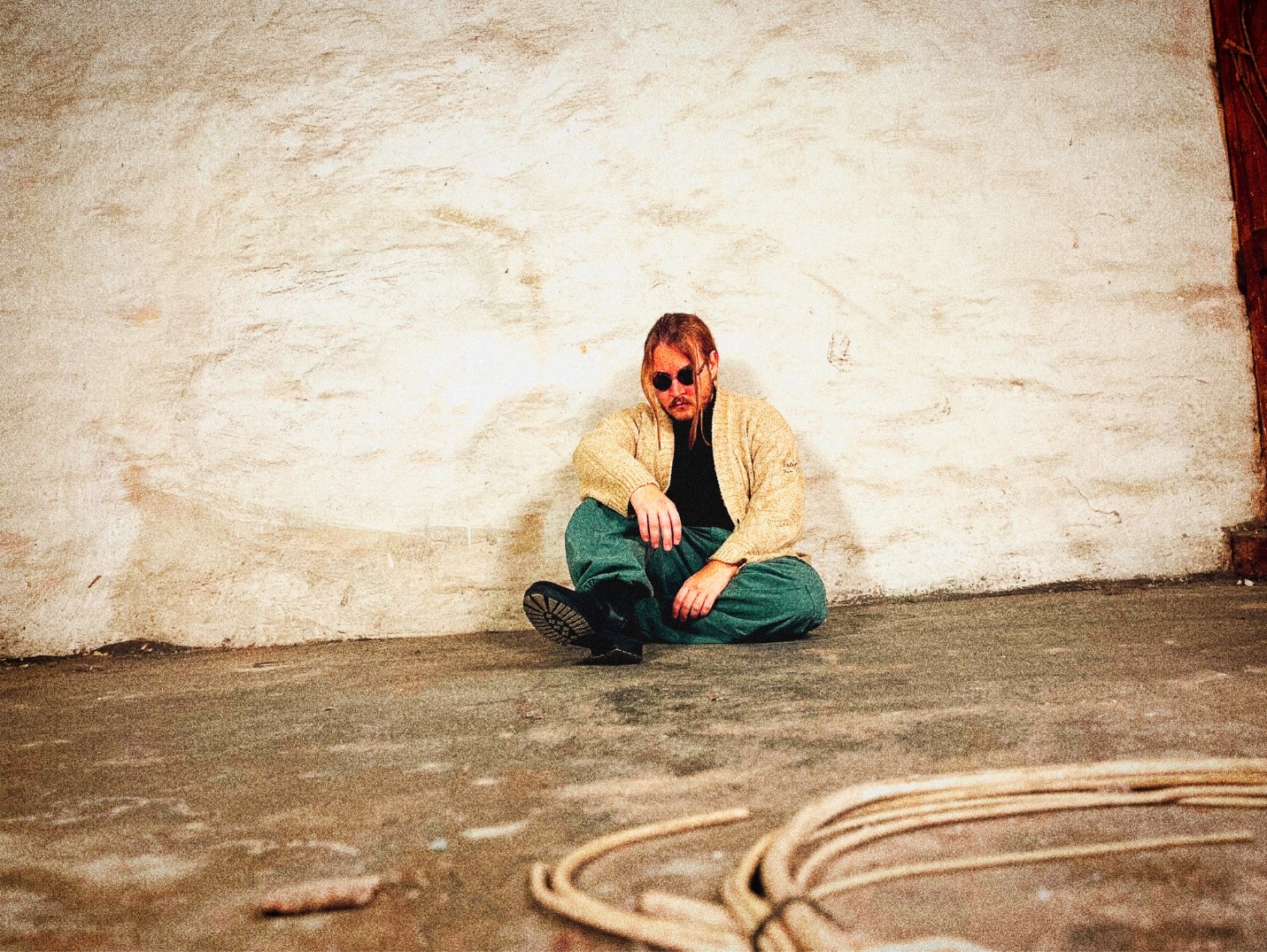Lars Weigmann, a 29-year-old residing in Halle, Germany is the mastermind behind independent one-man alternative rock project called “Everchanging Laws” and recently released a new EP entitled “Some Place I Forgot”.
Lars draws his inspiration primarily from post-grunge but strives to incorporate other alternative sub-genres such as indie rock and shoegaze into his music. The resulting three-track EP was entirely self-recorded.
The EP’s instrumentation aims for a balanced mix of hard-hitting, mellow, and melancholic elements. Lyrically, the EP explores themes of clinging to bad habits, self-reflection, and letting go. Lars crafted the songs to resemble an elaborate inner dialogue about avoiding the past and forgetting dark places and times. The dreamy atmosphere created by the amped acoustic guitars paired with thick lead guitars emphasizes the EP’s overall reflective and introspective mood. Check out the EP and the exclusive interview below:

1. Can you tell us a bit about where you come from and how it all got started?
EVERCHANGING LAWS: I was born and raised in and around the city of Halle in East Germany a few years after the fall of the Iron Curtain, so I’ve always been accustomed to the, then, newer kinds of music early on. Growing up, I’ve always had a diverse taste in music, whereas my peers always tended to lean towards one specific genre. You know, either you’re a Rock Head or a Hip-Hopper. But I’ve always enjoyed the different aspects of different types of music and how broad sounds can be. Plus, I always wanted to recreate what I liked or found interesting in my life. So, recently during Covid, I decided to revisit lots of the music of my early childhood, mainly in search of relief in nostalgia during these difficult times, and this inspired me to be creative once again, and I brought Everchanging Laws to life.
2. Did you have any formal training or are you self-taught?
EVERCHANGING LAWS: It was all self-taught. Mainly trial and error and online tutorials. And lots and lots of practice, of course.
3. Who were your first and strongest musical influences and why the name ‘EVERCHANGING LAWS’?
EVERCHANGING LAWS: It’s kind of a twist on my first name “Lars” combined with my love for different types of creativity. I tend to reinvent myself quite a bit in that regard – so you could say that my creative process is “ever-changing”.
My greatest influences are the classic grunge bands from back in the day: Nirvana, Alice in Chains, Soundgarden, Temple of the Dog – you name them. But I also try to encompass other Alternative Rock tendencies into my music, such as Shoegaze and Indie Rock.
4. What do you feel are the key elements in your music that should resonate with listeners, and how would you personally describe your sound?
EVERCHANGING LAWS: My sound is pretty much a mashup of the different contrasts that the genres of Rock have to offer – hard hitting, yet mellow at points. Crushing and In-Your-Face, yet thoughtful. Rooted in reality, yet dreamy and airy. I just love to showcase that Rock is a whole micro cosmos in itself in terms of variety. And I think this variety combined and collected in my songs is what resonates with most people.

5. For most artists, originality is first preceded by a phase of learning and, often, emulating others. What was this like for you? How would you describe your own development as an artist and music maker, and the transition towards your own style?
EVERCHANGING LAWS: Whenever I loved something as a kid, be it music, movies, video games or whatever, I always wished I were the creator of it. So pretty early on I recorded my own little songs, shot my own little movies or wrote my own stories. This love for creativity was carried all the way to my adult life and is still rooted in me now, and that still includes emulation of my main inspirations in some degree. Of course, I always put my own spins into my art, but having roots and coming from something that inspired me as a child is still very important to me. I guess it’s this mixture that really defines my style.
6. What’s your view on the role and function of music as political, cultural, spiritual, and/or social vehicles – and do you try and affront any of these themes in your work, or are you purely interested in music as an expression of technical artistry, personal narrative, and entertainment?
EVERCHANGING LAWS: Having a platform or audience and using it to share light on important aspects of our lives is really important in my opinion. I totally get that this is not something that every artist or public figure wants to do, and that is inherently fine, but I think there are so many issues out there in our current times that need to be addressed, that it would be like wasting your voice.
A core theme of my music is mental health and struggles with it – so this is significant topic that I like to address.
7. Do you feel that your music is giving you back just as much fulfillment as the amount of work you are putting into it or are you expecting something more, or different in the future?
EVERCHANGING LAWS: Even more than that! For me, the whole process of being creative, expressing myself and sharing it with people who might resonate with it gives me so much joy and fulfillment, that I can hardly express how much it means to me. I am just so thankful to be living in a time when this is possible, even just as a hobby.
8. Could you describe your creative processes? How do usually start, and go about shaping ideas into a completed song? Do you usually start with a tune, a beat, or a narrative in your head? And do you collaborate with others in this process?
EVERCHANGING LAWS: It usually just hits me like that. In these moments, I know that I have to grab my guitar and start playing. Then eventually, when I found something that I like, I develop the other parts around it. After the whole instrumental is done, I put it away for a few days and don’t listen to it, I kind of force myself to almost forget it. Then, when listening to it again, I really concentrate on my initial thoughts while listening – and that’s how I typically come up with vocal melodies and lyrics. And then I put everything together.
9. Creative work in a studio or home environment, or interaction with a live audience? Which of these two options excites you most, and why?
EVERCHANGING LAWS: As of now, I’ve only experienced work in my home studio, so I cannot speak on how interactions with live audiences would be for me. Though I imagine that this would create an even stronger connection with my audience, as live performance is something really tangible. But even the secluded work at home is something that I really cherish, as it puts me into a very special place and mindset.
10. With social media having a heavy impact on our lives and the music business in general, how do you handle criticism, haters, and/or naysayers in general? Is it something you pay attention to, or simply ignore?
EVERCHANGING LAWS: Criticism, both positive and negative, is something really valuable for me. Of course, it’s always better to hear that you’ve done everything right and that people love your work, but especially the more negative comments give you a chance to reconsider your doing and give you insight on something that you maybe couldn’t spot anymore after being so invested in your work. This was also the case for some opinions on my debut record “Everchanging Laws” and I took these points to heart and improved on them on my new EP “Some Place I Forgot”.
KEEP IN TOUCH:
FACEBOOK | INSTAGRAM | TWITTER | SPOTIFY | BANDCAMP | WEBSITE | YOUTUBE

Photo credits: Lars Weigmann
